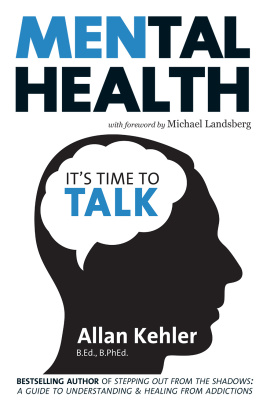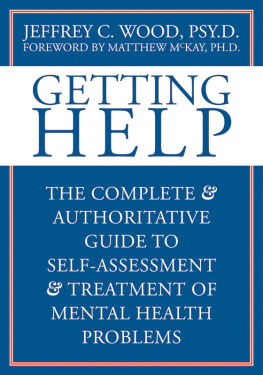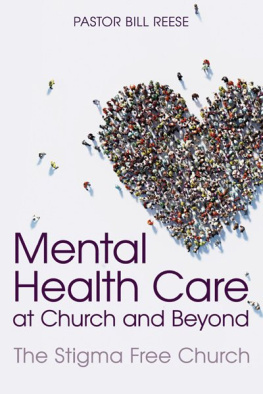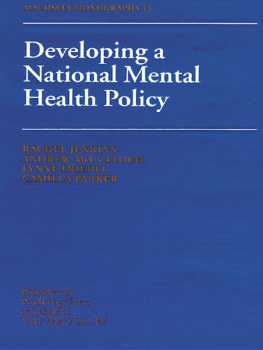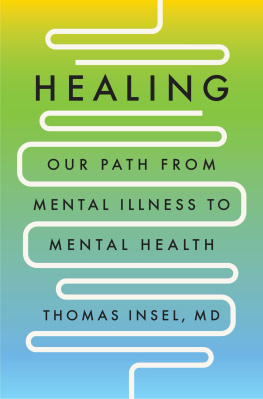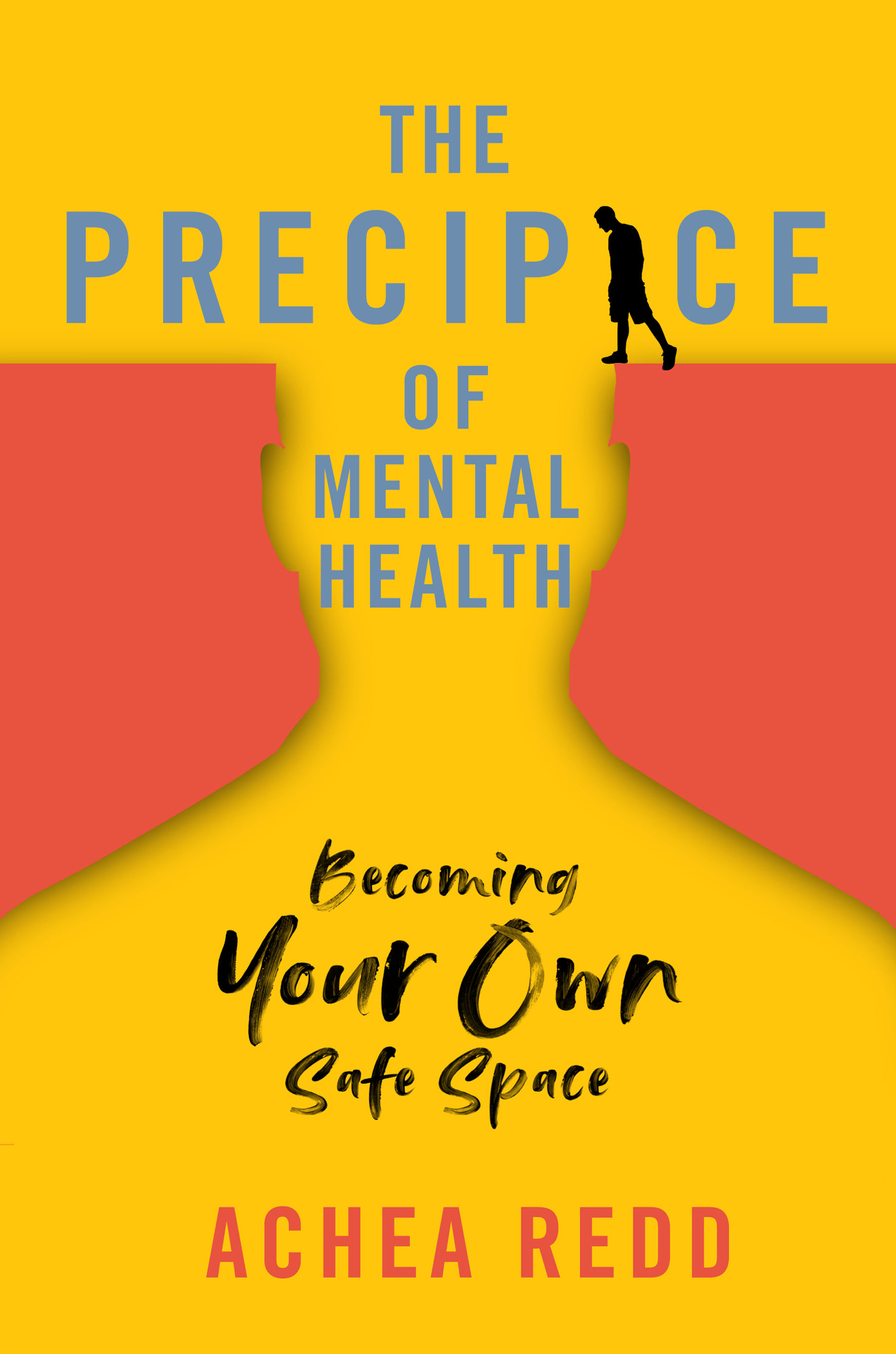Contents
Guide
The Precipice of Mental Health
Becoming Your Own Safe Space
Achea Redd
Depression is an endless subject because people experience it so differently.
To Achea Ren Redd
(Me)
FOREWORD
There is a war going on with mental health in this countryand it spreads beyond our borders. It is a battle of the minds. The Precipice of Mental Health is about the broader acknowledgment of mental health. Just as for any concern, you have to be able to acknowledge it and discuss it to work toward solutions to change it. One of the primary reasons that parents, spouses, family members, friends, and some people in general dont understand mental health is that they dont see what you see or feel what you feel. One of the reasons group counseling exists is so people can connect through similar experiences; they are not necessarily the same but it gives them the platform to express themselves and learn from others who understand them.
Still, its disheartening that some individuals must be in that position before they can empathize or understand you. It can be difficult for those with anxiety, depression, or other forms of mental health challenges to hear people say they dont understand it because they havent experienced it. Similarly, you dont have to be a doctor with cancer to treat cancer. Part of the solution is learning about mental health and what it can look like. Researching or asking the individual in order to learn more is the first step in showing that you care.
Mental health is a societal concern. We must work together to bring awareness and education to light rather than keep the issues hidden in the darkness where they will only fester. We have to put forth more effort listening to people before they reach that precipice of mental health. The point of The Precipice of Mental Health is to take a closer look at some of the ways anxiety and depression can affect you or those you love. It reveals Acheas journey and the damage it caused her along the way through a lack of acknowledgment, validation, and understanding throughout her childhood and into adulthood. This book, her journey, will help you realize that we have a long way to go to comprehend and accept rather than judging people who are struggling to find their balance before reaching that invisible precipice.
Achea has done a wonderful job shining a light on the darkest parts of anxiety and depression to help you understand what good mental health looks like, realize that you are not alone or stuck, and know that there are myriad resources you have available to attain it.
Alyssa Curry, LPC
ACKNOWLEDGMENTS
It was probably strange to see that I dedicated this book to myself. However, for years I have spent lots of time dumbing down the things Ive accomplished and worked hard for because I was afraid to appear arrogant.
Thankfully, through therapy I have been able to rejoice and celebrate more of my wins while dwelling less on my failures. That wouldnt have been possible without my community. First, I would like to acknowledge my chosen family (aka, my friends). They have been the best tribe anyone could ask for.
Thank you to Christie Angel and the entire YWCA Columbus family and Nationwide Childrens Hospital Foundations On Our Sleeves campaign for taking a chance on me and giving me my very first speaking engagements. Thank you for allowing me to be me and caring so much about the mental health of all those within your care.
Thank you to my entire mental health team at OSU, World of Hope Counseling, and Kovacs Counseling. You all have been and continue to be so instrumental in my recovery. Your compassion amazes me. Im truly blessed to know you.
To my publicity team, social media team, writers, and publishers who have helped me shape my thoughts into this beautiful masterpiece, I am now and will always be grateful to all of you.
Mom, I know this book was tough to read, but you did it anyway. I love you so much.
I love you Michael, MII, and Ardyn to the moon and back. You have seen me at my worst and still love me. You make me better and inspire me to become the best version of myself.
Last, to my loyal supporters and followers. Weve been through some stuff together and we have grown some too. Thank you for sticking with me, continuing to support the mission of mental health, and normalizing the conversation.
INTRODUCTION
The past rarely visits us on its own. It can bring with it situations or events that we dont want to think about or feel a connection towe want to leave them behind. It seems that something always brought my past to the surface, as though I were reliving the trauma. The triggers that brought everything to the forefront were still in existence, and they probably still are, but whats critical is understanding that triggers that come from the past are more dangerous than you may realize. Repeatedly talking about the past isnt going to change any of that history, but it can keep me there and cause more damage by replaying the most painful or negative aspects of my life.
My mental illness serves as evidence of my past. But wasting more time or years wondering why my father was the way he was will not change him or the situation. Ive acknowledged that its not worth revisiting. When you walk away from history, use those past experiences to prevent anything like that from happening again. Determine what changes to make in your life so that you can heal. I share with you small inserts or pieces of history, such as my relationship with my father, to show you that I understand my growth and you can too.
In telling my story, I am choosing to glance into the past to learn from it rather than relive it. Ive finally chosen to step out of that dark phase and into a healthier chapter of my life. This is about taking ownership of what you can control. Perhaps my journey will inspire you to become more self-aware so you can do renovations where theyre needed.
This is my journey, and what Ive gathered thus far.
CHAPTER 1 THE BEGINNING OF THE END
Over time Ive learned that healing isnt linear, and recovery isnt either. Regardless of the situation, Ive experienced moments of recovery and healing from depression, but just like a readout on a heart monitor, it has peaks and valleys. Situations occurred in the recovery periods that took me back to an unhealthy place during my childhood. You knowtriggers. We all have them, but not all of us have healthy coping skills or know how to manage them appropriately when theyre activated. During some of those devastating moments, I did my best to avoid being upset or pushed toward a setback so I wouldnt drown in depression. I learned to focus on being present rather than the beginning of my story.
For many years all the distractions of life helped me appear as though I was doing all rightuntil I wasnt. Truth be told, for the most part you know when youre not all right. You always know. When uncomfortable situations arose,when people joked about or said things that didnt agree with me internally, I had the propensity to blow it completely out of proportion. My dads criticism of me became a trigger, and I developed a particularly hypersensitive nature. It wasnt normal and I knew it, but thats just the way I was at the time. I had the proclivity to take one thought and expand it into something bigger than intended. If I perceived someone were yelling at me, perhaps it was just their passionate tone but I sometimes took it as anger. And like a hamster on a wheel, I repeatedly replayed the situation and obsessed over it, which only led me to negative self-talk because I thought I wasnt making that person happy.



